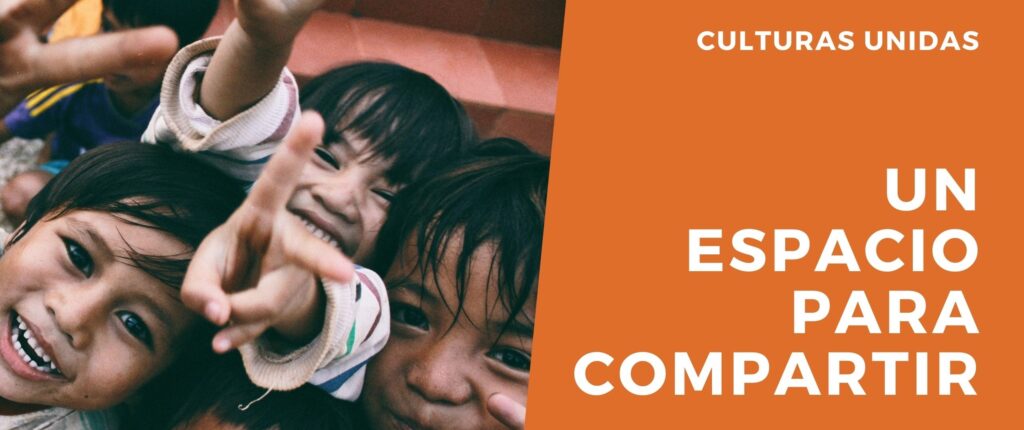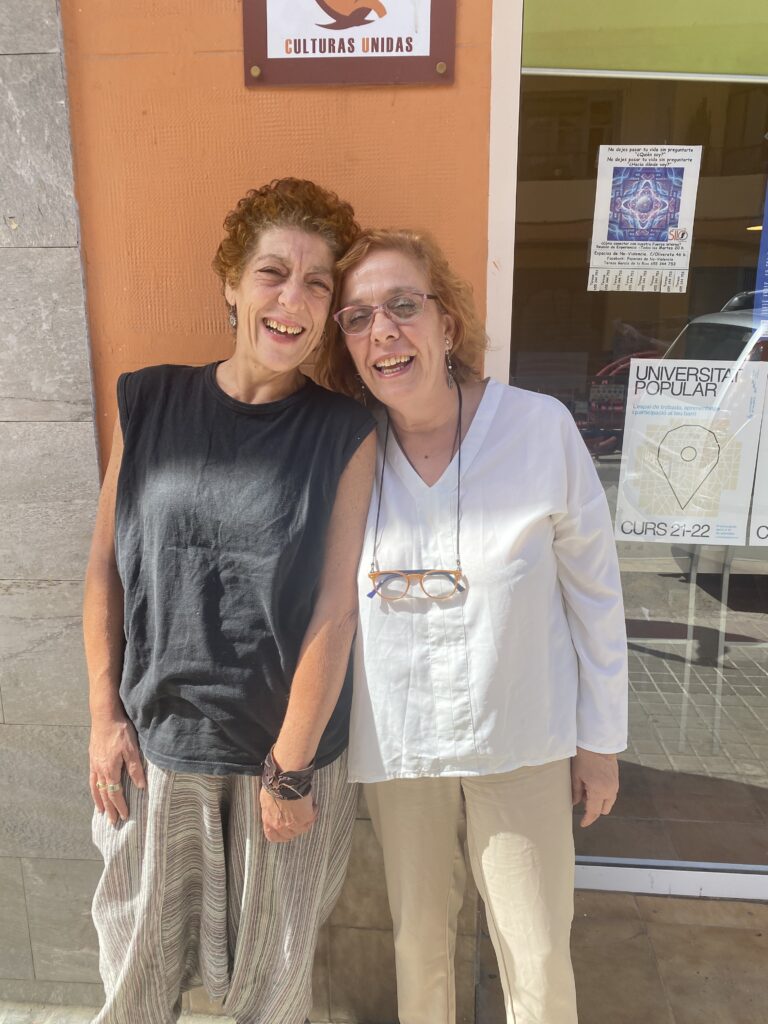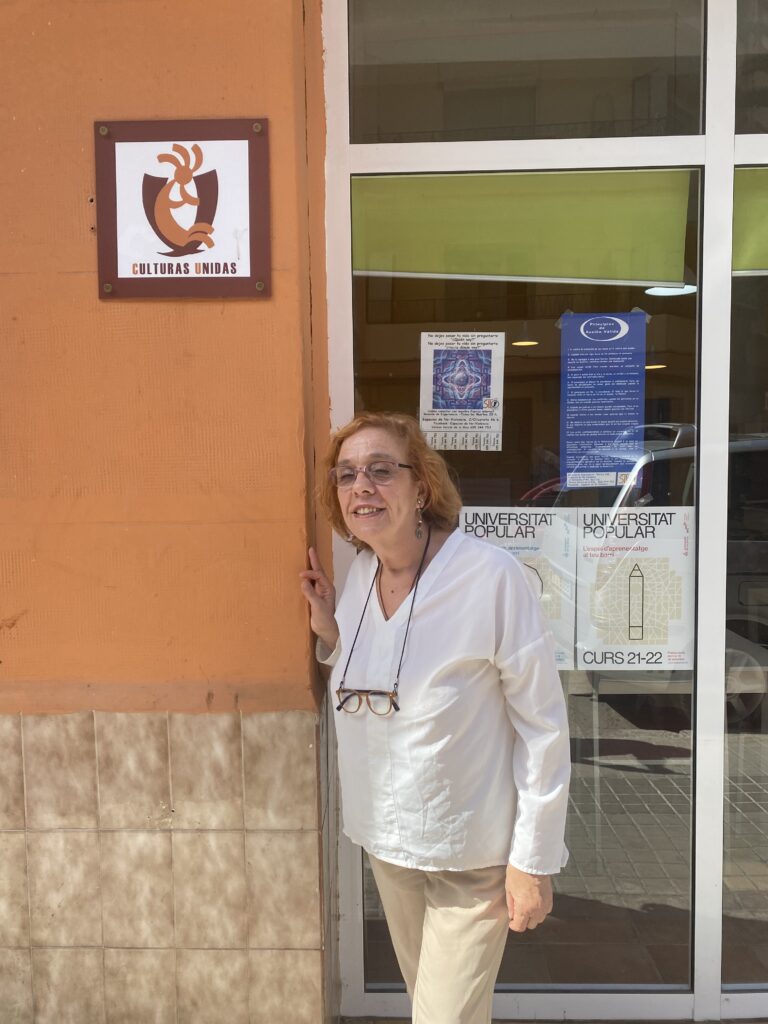Valencia has been voted the best city in the world to move to for wealthy “digital nomads” by Forbes. But for many, the immigrant experience is far less airbrushed. These two women from Culturas Unidas Valencia are trying to do something about that, says Eugene Costello

Whoever first said “You can’t understand someone until you’ve walked a mile in their shoes” is lost in the swirling mists of time. Perhaps more apt is the African proverb, “It takes a village to raise a child”. What both sayings have in common, however, is the need for empathy for one another, and how we have a duty to ensure that our children learn to love each other regardless of colour, creed, race or religion. Fail to do so, and the divisions are cemented for another generation. Fortunately, right here in Valencia two women are doing everything in their gift to achieve precisely that…
I am in the bustling neighbourhood of L’Olivereta, Valencia. Though only a few minutes west of the more rarefied neighbourhoods of El Carmen and Extramurs. Five minutes to the sanctuary that is Jardin Botánico, for example. This is a gloriously, triumphantly, noisily celebration of a mixed working-class neighbourhood typified and defined by immigration. Whether from Andalucia, Extremadura or Galicia historically in search of better opportunities in the city or from South America, Eastern Europe, Pakistan, India, China or Africa.
I am here at the office of Culturas Unidas just off Calle del Brazil. I’m here to meet Silvia Gonzalez, 60, originally from Argentina, and Silvana Ortiz, originally from Andalucia.

The values of Culturas Unidas
Silvia tells me about the history and values of Culturas Unidas. She tells me, “Culturas Unidas began in 1992 in Madrid. From the outset, the aim was to work with different cultures, especially those cultures most at risk of exclusion.
“We have always had numerous projects that we develop. In Madrid, we have a banco de alimentos – a food bank – and a community dentist, but we specialise in working with children first, and then their families.”
“We are here to build bridges – not tunnels…”
Silvana ortiz, Culturas Unidas
I ask why, and she explains that their main role is to help non-native-Spanish-speaking children with their studies. This they do in a number of ways. “We have after-school homework clubs where we help to get them up to the standard of their Spanish schoolmates,” she tells me.
They also arrange excursions to cultural sites such as the Museum of Prehistory, the City of Arts and Sciences.
She continues, “One of our principal aims is to include their families so they feel less excluded and more part of society. To this end, we also help to teach their mothers Spanish, for instance.”
She tells me that the Valencia outpost opened in January 2020 – “just before lockdown and the pandemic”. But what gives both women great pride is that the group they started with just weeks before one of the world’s strictest lockdowns is still with them today, at which both women beam.

From the playground to Zoom
They did this, they tell me, by creating WhatsApp groups and hosting Zoom meetings to bring the children together. All at a time when, on top of being figuratively excluded, they were also literally excluded.
The last time I met the two women was in the gardens of El Turia where they were with a whole bunch of children in a playground.
Silvia says, “Yes, we have 45 children, and that keeps us busy! Now we are preparing an excursion to Moixent in two weeks’ time,” Moixent being one of the most important Iberian archaeological sites, containing the ruins of la Bastida de les Alcusses.
And later in the same month they will organise another outing to the City of Arts and Sciences. On top of the homework club, it is clear that these two inspirational women see this as a vocation, a calling and not just a job. Both have worked as volunteers in this sector and have travelled a great deal as well, perhaps giving them this global perspective and desire to erode barriers between cultures. Silvana had travelled as a volunteer to Senegal in the past, so she says, “Now I am being paid to do what I love doing.”
A dream come true
And Silvia travelled to Guinea-Bissau as a volunteer with Culturas Unidas, but it was a chance conversation with the founder of the organisation, Carmen Gomez, that led to the opening of the Valencian office.
“When I mentioned to Carmen that I was moving to Valencia, she said, how wonderful, we are planning to open an office there – would you like to run it?”, says Silvia with a laugh.
“When I mentioned to Carmen that I was moving to Valencia, she said, how wonderful, we are planning to open an office there – would you like to run it?”, says Silvia with a laugh…
It was a dream come true, and together with Silvana, the two women seem to have a dream job.
“Our aim is to build a net, a net of humans – problems facing immigrants are often the same. Exclusion, lack of access to work, lack of access to money, lack of access to medicine and food, to culture. The key objective is to overcome these barriers and to bring families together by building communities around their children.
One of the things that bring both women great joy, they tell me, is that every day neighbours from the barrio pass by to gift toys, books and educational aides that their children have grown out of – “Spanish mothers,” Silvana points out, “not only mothers from different cultures. It is a sign of our values changing the wider community.
“We are here to build bridges – not tunnels,” she concludes.
Culturas Unidas, Carrer de l’Olivereta, 46, 46018 València, Valencia; 914 686 941 / 626 485 165; Facebook; Twitter; www.culturasunidas.org

